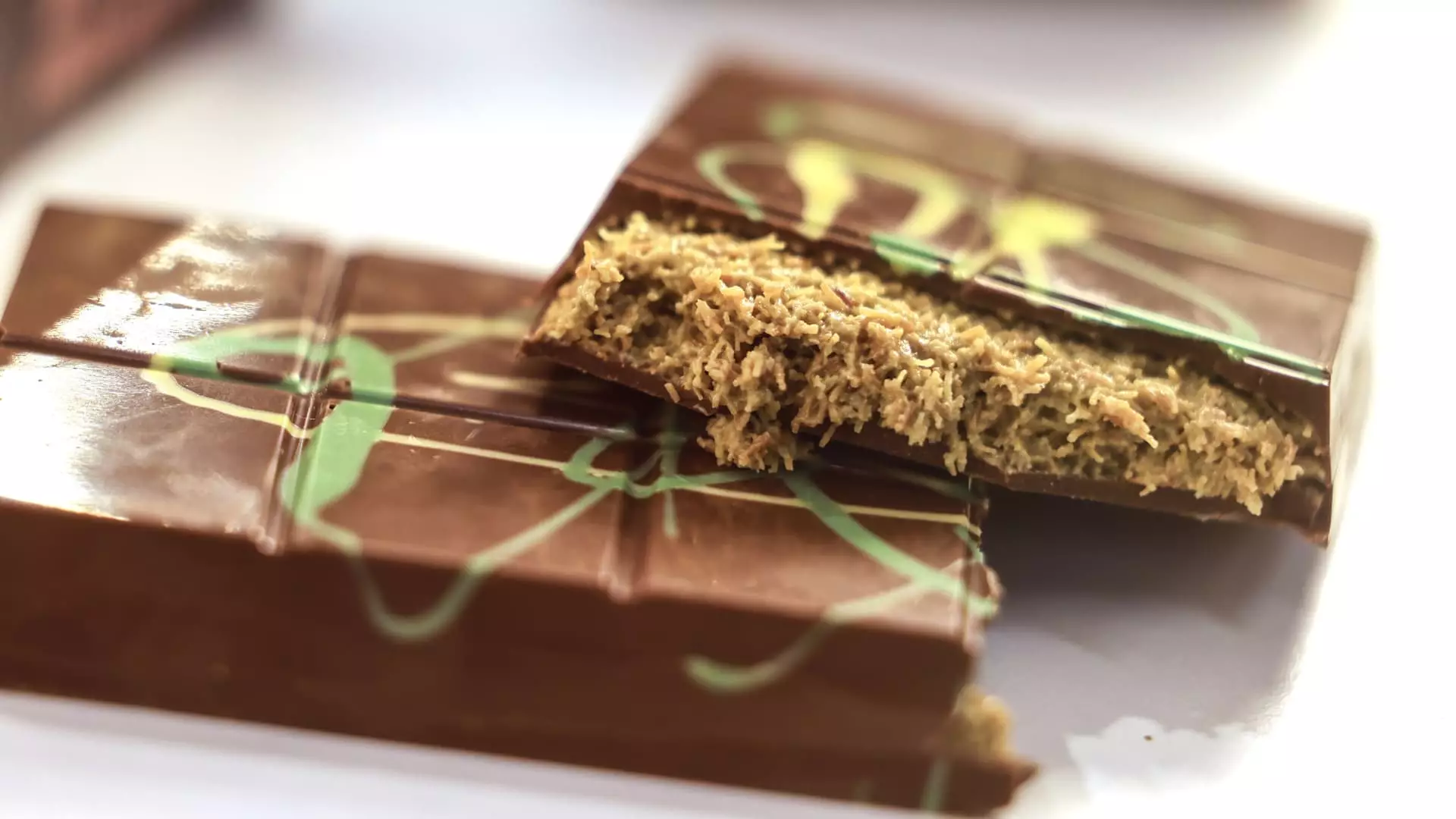In the world of culinary innovation, new trends often emerge from humble beginnings, and the so-called “Dubai chocolate” phenomenon is no exception. The concept took shape during an unexpected moment of vulnerability—pregnancy cravings experienced by Sarah Hamouda, the enterprising founder of Fix Dessert Chocolatier. What began as a personal longing for something sweet has evolved into a global craze, with American giants like Shake Shack and Crumbl scrambling to draw from this newfound well of inspiration. They’ve released limited-edition items featuring the exotic flavors of Dubai chocolate, demonstrating how quickly trends can morph into marketing gold. It beckons the question: Is this authentic culinary exploration, or merely opportunism cloaked in the pursuit of profit?
The Allure of Authenticity
The original Dubai chocolate bars, a delightful blend of pistachio cream, kadayif, and tahini, evoke an image of cultural authenticity that resonates deeply with today’s consumers seeking culinary experiences that transport them. Social media didn’t just elevate the bars; it magnified their allure, allowing them to go viral and creating explosive demand. Notably, Fix Dessert Chocolatier reported that orders surged from a mere weekly handful to upwards of 15 weekly, a clear indication that the chocolate bars encapsulate a craving for something uniquely vibrant amidst a sea of identical chocolate offerings. Yet, the excitement is tinged with a sense of irony, as the very name “Dubai chocolate” is unprotected in international trademark law, opening the floodgates to a legion of imitators eager to capitalize on this delicious trend.
Imitation or Innovation?
As the popularity of Dubai chocolate grew, other companies rushed to jump on the bandwagon. From major players like Lindt to small-scale cupcakeries, the landscape became cluttered with versions of the original bar, each claiming to capture its essence. While some might argue that imitation is the sincerest form of flattery, it also raises questions about innovation and creativity in an era obsessed with duplication and mass consumption. Companies like Nuts Factory in New York City positioned themselves as pioneers; they crafted their unique take on the Dubai chocolate bar and set themselves apart in the crowded marketplace. But does it dilute the experience when everyone seems to be making their version? Is the authenticity of a once-great culinary innovation lost amidst the clamor for cash?
Market Expansion or Cultural Appropriation?
As the craving for Dubai chocolate spreads beyond the borders of its origin, American companies like Dunkin’ and Starbucks have joined the fray, developing their takes on this Middle Eastern sweet. Yet, it compels the astute observer to consider whether this trend is a benign example of global sharing or if it veers dangerously close to cultural appropriation. It’s easy to see the allure of these innovations—companies furnish their offerings with exotic flavors that spark curiosity. In contrast, one can’t help but feel a sense of loss for the genuine experience that often gets sacrificed in the name of consumerism. The culinary landscape, often rife with stereotypes, runs the risk of commodifying traditions instead of honoring the cultures from which they arise.
The Double-Edged Sword of Trends
The continuous rise in popularity of flavors like chocolate-pistachio is telling; food service consultants indicate that these combinations experienced a notable increase, with chocolate-pistachio pairings jumping an impressive 22.3% in recent quarters. However, this data also underscores the volatile nature of such trends, where today’s hit sensation could swiftly fade into obscurity once the novelty wears off. Fast expansion without authentic roots can lead to a devaluation of the culinary product and the strain of an unsustainable demand could result in a fast crash. Nameless masses clamoring for a limited-supply item may one day find their cravings strangely unfulfilled when the next trend inevitably arrives.
In an age dominated by social media and rapid consumption, the rise of Dubai chocolate serves as a microcosm of contemporary food culture—where authenticity is often sacrificed at the altar of profitability, and unique experiences become fodder for the next viral sensation. Cultural appreciation is essential, yet the reality of how such trends unfold could spell trouble for genuine culinary artistry if left unchecked.

